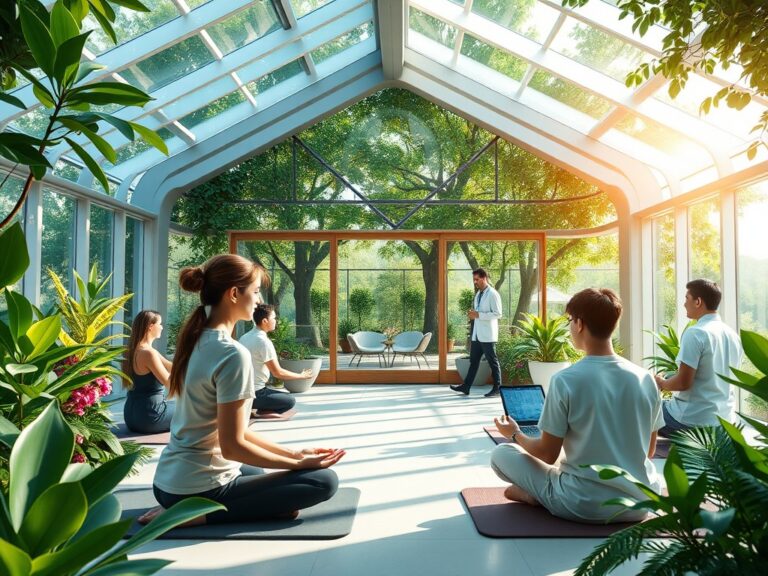Top Health Tech Gadgets for Sleep Tracking in 2025
Good sleep isn’t a luxury anymore—it’s a key part of overall well-being. With technology moving fast, sleep tracking has become one of the most valuable tools for anyone who wants to feel more rested, focused, and healthy. In 2025, an impressive range of health tech gadgets can help you understand your sleep patterns and improve nightly recovery. This guide explores the best devices, explains what makes them stand out, and shows how to use their data for long-term benefits.
Why Sleep Tracking Matters in 2025
Sleep is where your body repairs itself, consolidates memory, and balances hormones. Yet many people still wake up tired because they don’t understand what’s happening while they rest. Sleep tracking gadgets fill that gap by monitoring sleep stages—light, deep, and REM—along with heart rate, breathing, and movement.
According to research from the Sleep Foundation, better insight into your sleep can lead to healthier routines, reduced stress, and improved recovery from exercise or injuries. That’s why more athletes, busy professionals, and health-conscious individuals rely on wearable or contactless trackers.
Key Features to Look for in Sleep Tracking Gadgets
Before buying any device, consider these essentials:
- Accuracy of sensors – Look for gadgets with advanced algorithms that measure heart rate variability and micro-movements.
- Form factor – Decide between wearables (rings, watches, headbands) and non-wearables (smart mattresses or bedside sensors).
- App integration – The best tools sync with mobile apps or wellness platforms for detailed analysis.
- Battery life & comfort – You don’t want to recharge daily or feel restricted while sleeping.
- Privacy & data security – Choose brands with clear policies about how they handle your information.
Top Health Tech Gadgets for Sleep Tracking in 2025
Below are the standout devices of the year, chosen for accuracy, usability, and extra health insights.
Oura Ring Gen4 — Minimalist Wearable With Deep Analytics
This sleek ring measures sleep stages, readiness, and temperature. Its discreet design makes it easy to wear all night while offering powerful analytics in its companion app.
Fitbit Sense 3 — Smartwatch for Total Wellness
Fitbit’s flagship watch monitors sleep, stress, and heart health. Daily readiness scores and guided breathing exercises help you align bedtime with lifestyle habits.
Withings Sleep Analyzer — Mattress-Based Tracker
Slip this sensor under your mattress for effortless sleep tracking. It records breathing disturbances, snoring, and heart rate without requiring anything on your wrist or finger.
Apple Watch Ultra 3 — High-End Sleep & Fitness Tool
Apple’s 2025 release offers advanced sleep metrics alongside fitness coaching. It’s perfect if you want one device for workouts and nighttime monitoring.
Eight Sleep Pod 4 — Smart Bed With Cooling Tech
This mattress topper regulates temperature automatically and analyzes your sleep phases. It’s ideal for couples who need different sleep environments.
Amazfit Balance — Affordable All-Rounder
Budget-conscious users will appreciate this watch’s impressive accuracy and extended battery life. It tracks sleep quality, heart rate, and stress.
Muse S Headband — Brainwave Feedback for Better Sleep
Muse helps you wind down with guided relaxation, then monitors brain activity to see how well you stay asleep.
Garmin Venu 4S — Athlete-Focused Sleep & Recovery
Garmin’s watch combines sleep tracking with training readiness, making it perfect for people balancing intense workouts and rest.
How to Use Sleep Tracking Data to Improve Rest
Collecting data is only the first step. To see results:
- Review your sleep score and look for patterns—late caffeine, heavy meals, or stress can shorten deep sleep.
- Experiment with bedtime routines, breathing exercises, or limiting screens before bed.
- Use tracking insights to support injury recovery. For example, quality rest is crucial if you’re healing from conditions like tennis elbow, where consistent sleep can accelerate repair.
Combining Sleep Tracking With Other Health Habits
Better sleep often goes hand in hand with other wellness routines. Hydration, skincare, and mindfulness can all enhance recovery. A soothing night-time ritual, such as applying a nourishing cream like the Cilxarhu677 Moisturizer, pairs perfectly with winding down for bed. Combining these practices with sleep tracking helps you create a holistic approach to wellness.
Future of Sleep Tracking Technology
The next wave of gadgets promises even more personalization. Expect:
- AI-driven sleep coaching that predicts your ideal schedule.
- Smart home integration, where lighting, room temperature, and calming sounds adjust automatically based on your data.
- Biohacking tools, offering personalized supplements or breathing exercises synced with your nightly stats.
As 2026 approaches, expect sleep tracking to merge with mental health apps and nutrition platforms for a complete picture of well-being.
Conclusion
Sleep is the foundation of good health, and technology makes it easier than ever to protect it. By choosing the right gadget—from rings to smart beds—you can turn nighttime into a science-backed recovery process. Explore the options above, use the data thoughtfully, and make sleep tracking your ally for sharper focus, better energy, and long-term wellness.
Faqs
A: Sleep tracking is the use of gadgets or apps to monitor your sleep patterns, including stages like light, deep, and REM sleep. Devices use sensors to track movement, heart rate, breathing, and sometimes brainwaves to provide insights about your nightly rest.
A: Not necessarily. While wearables like smartwatches and rings are popular, you can also use non-wearables such as smart mattresses or bedside sensors that track sleep without being worn.
A: Accuracy varies by device. High-quality gadgets, like Oura Ring Gen4 or Withings Sleep Analyzer, use advanced sensors and algorithms to provide reliable insights. Always check user reviews and clinical validations for the best results.
A: Yes. By analyzing trends in your sleep data, you can adjust bedtime routines, limit screen time, or manage stress to improve sleep duration and quality. Combining tracking with healthy habits enhances results.
A: Athletes can use sleep tracking to monitor recovery, optimize training schedules, and prevent overtraining. Devices like Garmin Venu 4S provide insights that help balance intense workouts with sufficient rest.

Kamran Khatri is a versatile writer and editor at ExpressZone.co.uk, bringing fresh perspectives and insightful commentary across a wide range of topics. With a passion for exploring diverse subjects—from technology, business, and finance to lifestyle, travel, and the arts—Kamran aims to inform, inspire, and engage readers through well-researched articles and thought-provoking content.
His work spans multiple categories including health, education, pets, entertainment, real estate, and sustainability, reflecting his commitment to delivering knowledge that connects with everyday life. Whether breaking down the latest trends, sharing practical tips, or highlighting cultural insights, Kamran’s writing combines clarity with creativity.
When he’s not crafting stories for ExpressZone.co.uk, Kamran enjoys keeping up with global developments, exploring innovative ideas, and connecting with readers who share his curiosity about the world.






